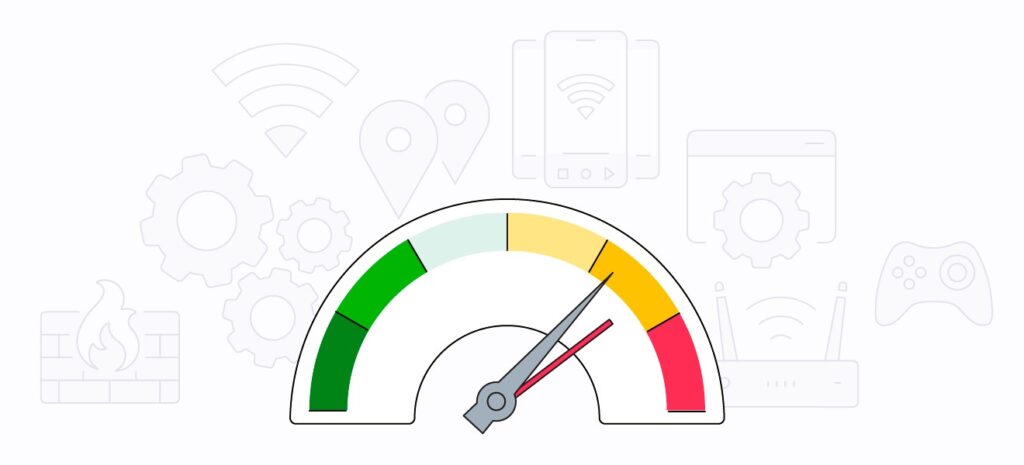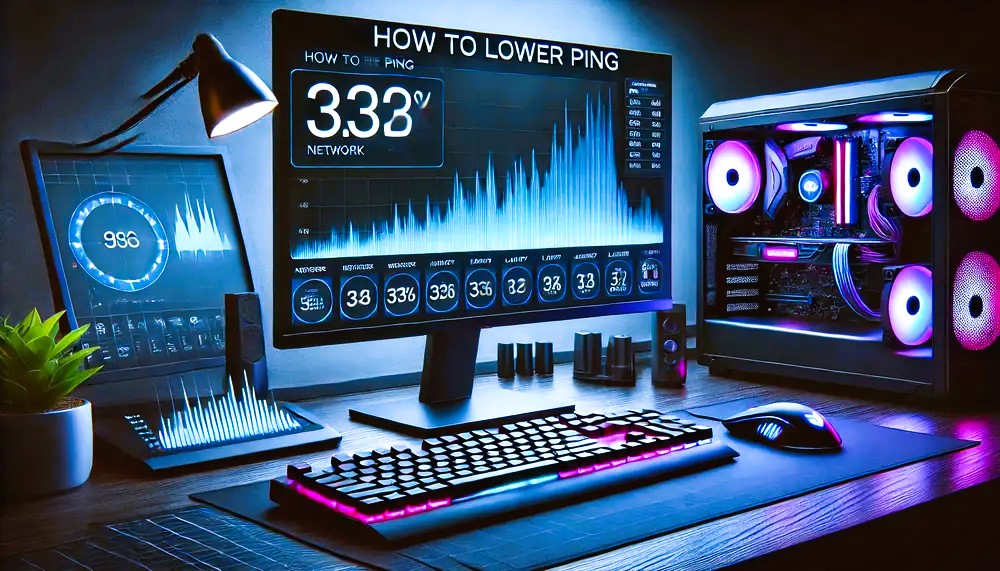In the world of online gaming, your ping can mean the difference between victory and defeat. A high ping can result in frustrating lags, delayed responses, and a gaming experience that feels more like battling your internet connection than your opponents. Whether you’re a casual player or an aspiring esports professional, understanding and improving your ping is essential for smoother, more enjoyable gameplay.
What is Ping?
Ping, in the context of online gaming, refers to the time it takes for data to travel from your device to the game server and back, measured in milliseconds (ms). It’s essentially the speed of communication between your system and the server.
Why is Ping Important for Gamers?
- Low Ping (Good): Results in smooth gameplay with quick responses, crucial for fast-paced games like Call of Duty, Fortnite, or Valorant.
- High Ping (Bad): Leads to lag, delayed reactions, and a frustrating experience where actions you take appear late or inconsistently.
For example, a ping under 50 ms is considered excellent for gaming, while anything above 100 ms can result in noticeable delays.
Factors That Affect Your Ping

Several elements contribute to your ping, including:
- Internet Connection Type: Fiber-optic or wired connections offer lower ping compared to Wi-Fi or mobile networks.
- Geographic Distance to Server: The farther you are from the game server, the higher your ping is likely to be.
- Network Congestion: More devices using your network simultaneously can increase your ping.
- Hardware Limitations: Older routers or devices may not handle modern internet speeds effectively.
For a deeper dive into the technical aspects of ping and latency, visit the Wikipedia page on latency.
How to Test Your Ping
To start improving your ping, you need to know what you’re working with. There are many online tools available, such as AllSpeedTest.com, that can provide a quick and accurate measurement of your ping.
These tools often display additional metrics like download and upload speeds, which are also vital for an optimal gaming experience.
Tips to Improve Your Ping
Improving your ping involves a combination of hardware upgrades, software tweaks, and behavioral changes. Here are actionable steps you can take: Did you like the article? Read also about The Impact of Internet Speed.
1. Switch to a Wired Connection
Wi-Fi is convenient, but it introduces latency due to interference and signal strength variations. Using an Ethernet cable can provide a more stable and lower ping.
2. Close Background Applications
Other programs running on your device can consume bandwidth, increasing ping. Close unnecessary applications, especially those using the internet, such as streaming services or large downloads.
3. Select Servers Closest to You
Many games allow you to choose servers. Opt for the one geographically nearest to your location to reduce the distance data has to travel.
4. Optimize Your Router Settings
- Enable Quality of Service (QoS): Many modern routers have QoS features that prioritize gaming traffic.
- Change Frequency Bands: Switch from 2.4 GHz to 5 GHz for less congestion, provided your device and router support it.
- Reboot Regularly: Restarting your router can clear temporary glitches and improve performance.
5. Upgrade Your Internet Plan
If your current plan doesn’t offer sufficient speed or low latency, consider upgrading. Aim for at least 25 Mbps download speed for casual gaming, but competitive gamers may require higher speeds.
6. Use a Gaming VPN
Gaming VPNs can reduce ping by routing traffic through optimized servers. However, choose a reputable VPN as some may increase latency instead.
7. Update Your System and Game
Outdated drivers or game versions can cause performance issues. Ensure your GPU, network adapter, and game software are updated.
8. Monitor Your Network
Use tools to analyze your network and identify issues such as packet loss or jitter. Fixing these problems can significantly improve your gaming performance.
Advanced Techniques for Reducing Ping

For gamers who want to go the extra mile:
1. Invest in a Gaming Router
Gaming routers are designed with features like lower latency, advanced QoS, and better signal strength.
2. Use Network Priority Settings
On some devices, you can prioritize gaming traffic over other activities. This is especially helpful in shared networks.
3. Disable Background Updates
Prevent automatic updates for your operating system, games, or other software during gaming sessions to avoid sudden spikes in ping.
4. Test Different DNS Servers
Switching to a faster DNS server, such as Google DNS or Cloudflare DNS, can slightly improve connection speeds.
For more tips and insights, check out IGN’s guide to gaming networks.
How Much Ping is Too Much?
Different types of games have varying requirements for ping:
| Game Type | Acceptable Ping (ms) |
|---|---|
| Casual RPGs (e.g., Skyrim) | Up to 150 ms |
| FPS Games (e.g., Call of Duty) | Below 50 ms |
| MOBA Games (e.g., League of Legends) | Below 60 ms |
| Fighting Games | Below 30 ms |
High ping can still work for single-player or turn-based games, but it’s a significant disadvantage in real-time competitive scenarios.
The Impact of Ping on Gaming Performance
In competitive gaming, milliseconds matter. A delay of just 100 ms can mean the difference between landing a crucial shot and missing entirely. High ping can lead to:
- Input Lag: Your actions are delayed on-screen.
- Rubberbanding: Your character suddenly teleports back to a previous position.
- Disconnections: Prolonged high ping can even cause you to be kicked out of the server.
Improving your ping is one of the most effective ways to enhance your online gaming experience. By taking the steps outlined above—such as switching to a wired connection, optimizing your router, and choosing the nearest servers—you can minimize latency and enjoy smooth, lag-free gameplay.
For gamers who are serious about performance, investing in better hardware and upgrading your internet plan are worthwhile considerations. And always remember to monitor your ping regularly with tools like AllSpeedTest.com to ensure your network stays optimized.
With low ping, you can truly level up your gaming and make every millisecond count.

